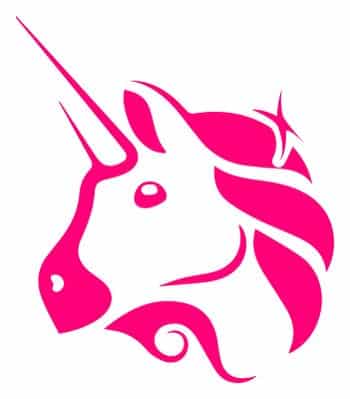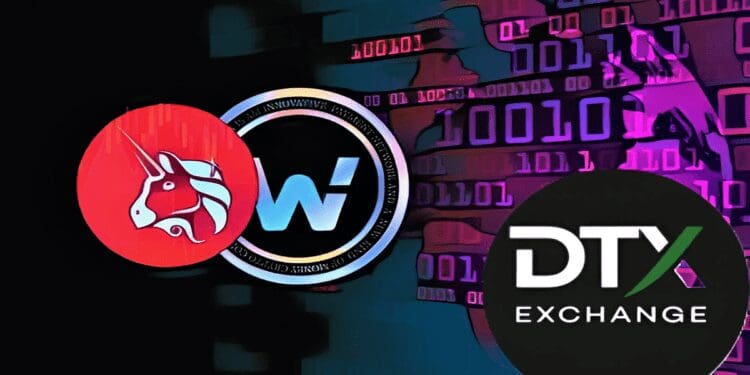Understanding the Landscape of Decentralized Exchanges (DEXs) in 2024
Decentralized exchanges (DEXs) have become pivotal players in the cryptocurrency market, offering users autonomy, security, and transparency in trading digital assets. As the crypto landscape continues to evolve, investors are faced with an array of DEX options, each with its unique features and value propositions. In 2024, three DEX platforms stand out as frontrunners: Uniswap, DTX Exchange, and WOO Network.
Uniswap: A Pioneer in DEX Innovation

Since its launch in 2018, Uniswap has spearheaded innovation in the DEX space with its groundbreaking Automated Market Maker (AMM) model. Uniswap’s AMM mechanism facilitates decentralized trading by eliminating the need for traditional order books and instead relies on liquidity pools. This approach ensures high liquidity for popular assets and allows users to execute trades seamlessly.
Uniswap’s strengths lie in its deep liquidity pools, which have attracted a large user base seeking efficient trading experiences. Moreover, its simple and intuitive interface makes it accessible to both novice and experienced traders. Additionally, Uniswap operates under a community governance model, where decisions are made by holders of its native token, UNI, fostering decentralization and inclusivity.
However, Uniswap faces challenges such as high gas fees, a common issue on the Ethereum network during periods of congestion. These fees can significantly impact smaller traders, making transactions less cost-effective. Furthermore, Uniswap’s limited support for advanced order types may deter experienced traders from seeking sophisticated trading strategies. Despite these drawbacks, Uniswap remains a prominent player in the DEX ecosystem, driving innovation and liquidity provision.
DTX Exchange: A New Player with Ambitious Goals

While relatively new compared to Uniswap, DTX Exchange has quickly gained traction in the DEX market. DTX distinguishes itself through its innovative hybrid order book/AMM model, blending the best aspects of both systems. This approach aims to offer users lower fees and enhanced flexibility while trading. Moreover, DTX boasts an extensive range of assets, surpassing 120,000 financial instruments, including cryptocurrencies, foreign exchange, stocks, commodities, and CFDs.
One of DTX’s key selling points is its support for high-leverage trading, allowing users to amplify their potential earnings significantly. Additionally, DTX operates on a zero-commission policy, advocating for fair and transparent trading practices. However, being a newcomer in the DEX arena, DTX lacks a proven track record, which may deter risk-averse investors. Nonetheless, its innovative features and commitment to diversity position it as a promising contender in the DEX landscape.
WOO Network: Tailored for Professionals

WOO Network caters to institutional investors and seasoned traders, offering advanced solutions tailored to their specific needs. At the heart of WOO Network is Wootrade, a flagship offering that provides users access to deep liquidity pools and minimal slippage for large trades. Additionally, WOO Token (WOO) incentivizes trading activity and offers fee reductions, encouraging liquidity provision and market participation.
Institutional-grade features like Over-The-Counter (OTC) trading desks further enhance WOO Network’s appeal to professional traders. However, WOO Network’s focus on catering to institutional clients may limit its appeal to retail investors seeking user-friendly interfaces and lower barriers to entry. Moreover, concerns about transparency regarding liquidity aggregation practices may pose challenges to gaining broader acceptance.
Key Takeaways from the DEX Landscape of 2024
- Innovative Solutions: DEX platforms like Uniswap, DTX Exchange, and WOO Network offer diverse features catering to different trading needs, ranging from simplicity and accessibility to advanced trading tools and institutional-grade services.
- Risk Awareness: Investors should conduct thorough research and understand the strengths and weaknesses of each DEX before making investment decisions. While DEXs offer benefits such as decentralization and security, they also come with risks, including high gas fees, limited liquidity, and potential smart contract vulnerabilities. By staying informed and exercising due diligence, investors can navigate the evolving DEX landscape with confidence.













Discussion about this post